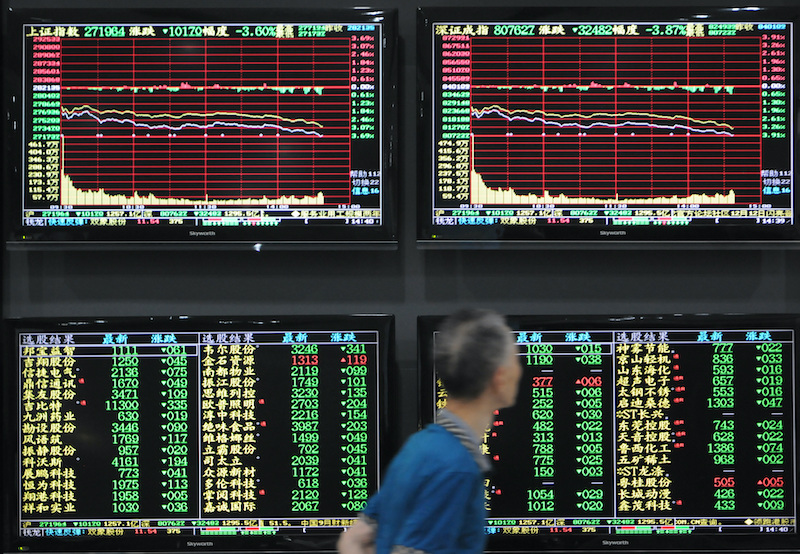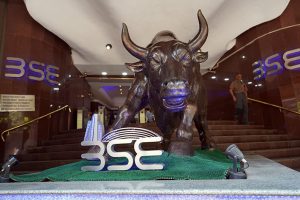Asia’s major stock indexes staged a recovery on Wednesday as the threat of a banking crisis faded and the likelihood of more aggressive interest rate hikes from the US Fed receded too.
Equities across the region tracked a relieved Wall Street after US inflation data delivered no nasty surprises, reinforcing hopes the Federal Reserve will likely go for a smaller rate hike when it meets next week.
Investors also piled back into stocks in US markets overnight as fears eased about contagion in the banking sector following the collapse of Silicon Valley Bank (SVB) last week.
Also on AF: China Seen Lifting Retirement Age to Avert Pension Timebomb
First to react was Japan, where banking stocks closed higher, helping the Nikkei share average snap a three-day losing streak as its markets recovered some composure after the SVB meltdown.
The Tokyo Stock Exchange’s banking index rose 3.3%, led by regional lenders including Suruga Bank and Shimane Bank, which climbed more than 5% each.
The Nikkei had a volatile session, but recovered in the final 15 minutes of trade to close steady at 27,229.48, up 0.03%, or 7.44 points. Over the previous three days, the benchmark had slumped nearly 5%.
The broader Topix, which is more influenced by banking shares, gained 0.65% to 1,960.12.
China stocks saw a broad-based rally as investors welcomed domestic data that signalled more signs of improvement for the world’s No2 economy, while the positive news on US inflation and easing contagion fears from the SVB collapse also helped.
Retail sales in China in the first two months jumped 3.5% year-on-year, reversing a 1.8% annual fall seen in December, but factory activity expanded slightly slower than expected, rising 2.4% for the same period, according to data by the National Bureau of Statistics.
Hong Kong Tech Gains
China’s blue-chip CSI 300 Index went up 0.37%, while the Shanghai Composite Index rose 0.55%, or 18.00 points, to 3,263.31. The Shenzhen Composite Index on China’s second exchange edged up 0.26%, or 5.33 points, to 2,081.26
Hong Kong-listed technology giants gained 1.9%, with Baidu surging 4.9% as investors snapped up ChatGPT-related stocks after OpenAI said it is beginning to release a powerful artificial intelligence model known as GPT-4.
The Hang Seng Index climbed 1.52%, or 291.91 points, to 19,539.87, and the Hang Seng China Enterprises Index jumped 1.6%.
Elsewhere across the region, Singapore, Seoul, Taipei and Manila all put on more than 1%, while Bangkok was more than 2% higher. Sydney and Wellington were also up, while Jakarta was flat and Mumbai slipped.
MSCI’s broadest index of Asia-Pacific shares outside Japan was 1% higher, having slid 1.7% on Tuesday after SVB’s collapse triggered heavy selling.
Investor Inflation Relief
The rally is unlikely to continue in Europe with European stock futures indicating a lower open. Eurostoxx 50 futures were down 0.07%, German DAX futures up 0.01% and FTSE futures down 0.04%.
“It’s clearly dominated by a relief rally rather than any inflation angst,” said Robert Carnell, regional head of research, Asia Pacific at ING. “I suppose what we’ve got is the banking sector in the US returning to stability, with depositors being given the fairly clear signal that they’re not going to lose out.”
Investors were also relieved after February’s US inflation report on Tuesday showed consumer prices rose 0.4%, with a year-on-year gain of 6% – in line with analyst expectations.
There were worries that stronger-than-expected data might lead the Fed to go for jumbo-sized hikes to battle inflation.
As recently as last week, markets were braced for the return of large Fed hikes but the swift collapse of SVB has changed those expectations, with market pricing in an 80% chance of a 25 basis point hike next week.
US Dollar Holds Steady
US Treasury yields extended gains into Asian hours after sharp declines at the start of the week. The yield on 10-year Treasury notes was up 2.1 basis points to 3.657%.
The two-year US Treasury yield, which typically moves in step with interest rate expectations, was up 7.1 basis points at 4.296%, but far off last week’s peak of 5.084%.
In the currency market, the greenback held steady, with the dollar index, which measures the US currency against six rivals, at 103.69, with the euro mostly flat at $1.0737.
The Japanese yen weakened 0.4% to 134.75 per dollar, while sterling was last trading at $1.2156, down 0.03% on the day.
Oil prices rebounded more than 1% on Wednesday due to a stronger OPEC outlook on China’s demand. Brent crude futures climbed 1.2% to $78.38 a barrel. US West Texas Intermediate crude futures (WTI) gained 1.4% to $72.29 a barrel. On Tuesday, the benchmarks fell more than 4% to three-month lows.
Key figures
Tokyo – Nikkei 225 > UP 0.03% at 27,229.48 (close)
Hong Kong – Hang Seng Index > UP 1.52% at 19,539.87 (close)
Shanghai – Composite > UP 0.55% at 3,263.31 (close)
London – FTSE 100 < DOWN 1.21% at 7,544.67 (0935 GMT)
New York – Dow > UP 1.06% at 32,155.40 (Tuesday close)
- Reuters with additional editing by Sean O’Meara
Read more:
Chinese Start-Ups Hunt for ‘Friendly’ Banks to Park SVB Funds
Asia Stocks Tumble as SVB Collapse Sparks Contagion Panic
























